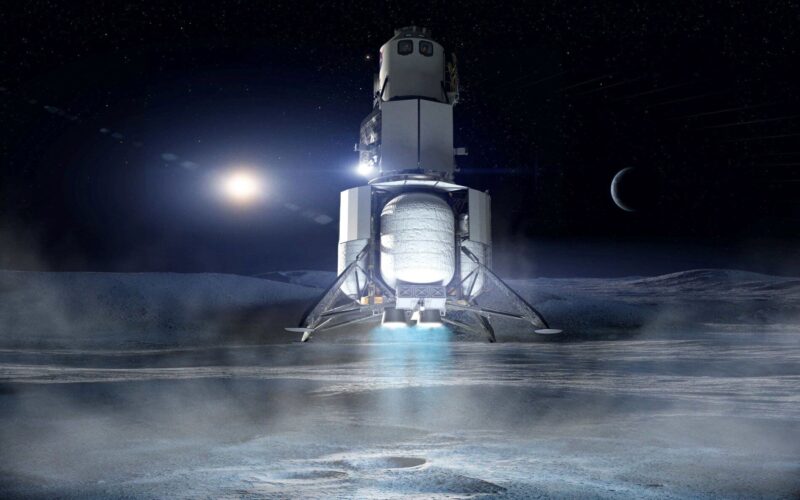Jeff Bezos’ Blue Origin attacks NASA and SpaceX in a protest against the agency’s decision to award a $2.9 billion Moon landing contract.
The contract was awarded to Elon Musk’s company on April 16, 2021, as it was selected as the sole winner to build Human Landing System (HLS), a lunar lander for the upcoming Artemis mission.
On April 26, the United States Government Accountability Office received a 175-page protest from Jeff Bezos’ space venture Blue Origin, which – along with Dynetics – also participated in the contest.
In the document, the company claims that the HLS acquisition program was “flawed” and that NASA “moved the goalposts at the last minute”. In particular, the company accused the agency of not giving other contestants the opportunity to change their proposals after the budget for the mission was reduced.
Reportedly, SpaceX was chosen primarily for its ability to fit into the shrunken budget. The initial expectation was for two companies to get awarded – to preserve the competition and increase redundancy – but the program budget for the fiscal year 2021 alone was reduced by three-fourths. As a result, NASA came to a decision to select just one contestant, a solution which has been called risky and unexpected.
“Blue Origin could have and would have taken several actions to revise its proposed approach, reduce its price to more closely align with funding available to the Agency, and/or propose schedule alternatives,” the company claims in its protest.
Blue Origin’s proposal was developed in conjunction with Lockheed Martin and Northrop Grumman, and according to NASA’s statement, its price was higher than SpaceX’s “by a wide margin”. SpaceX also received slightly higher ratings in the competition, its HLS variant – based on the Starship – being rated similarly to Blue Origin in technical rating, but better in management rating.
The contract between NASA and SpaceX is expected to be signed on May 1. It includes one uncrewed test flight of the lander, as well as one-week-long crewed flight by 2024, which is expected to become the first step for subsequent, more regular flights.

